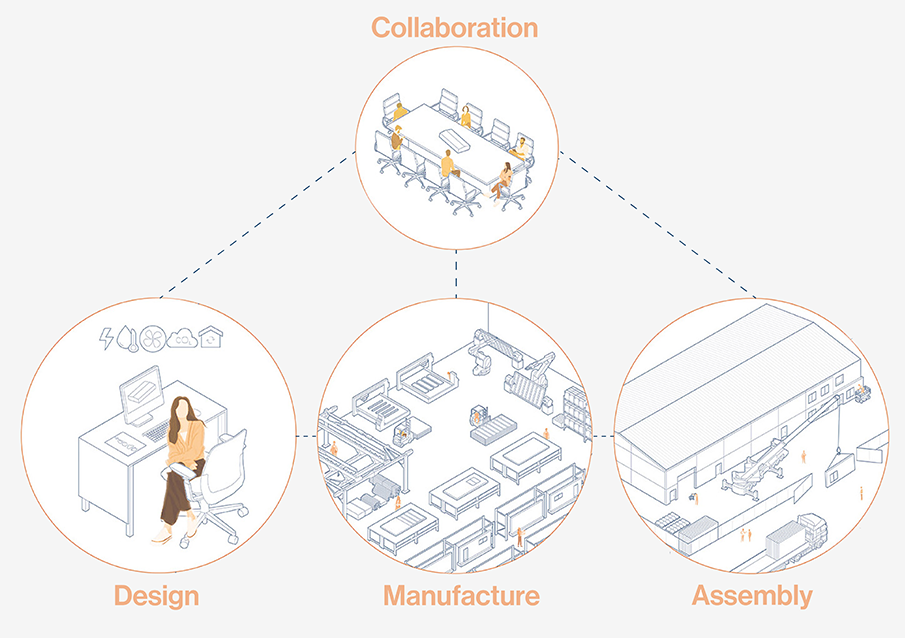Design for Manufacturing and Assembly

Develop and deliver a training curriculum, tools, and workflow for architects and engineers to leverage industrialized prefabrication processes from early design stages.
Context
The AEC (architecture, engineering, and construction) industries remain largely entrenched in conventional, linear design methodologies.
This compartmentalization results in fragmented coordination among working groups, leading to systemic inefficiencies in design, coordination, & construction, elevated risk & costs, and preventable errors.
Our team advocates for adopting a Design for Manufacturing and Assembly (DfMA) framework aimed at reconciling the disjunctions between key industry actors and establishing a cohesive, streamlined, end-to-end workflow. This approach intentionally embeds architects, engineers, and construction professionals into the design process from its earliest stages through to fabrication and on-site assembly, thereby enhancing precision and decision-making in design, construction logistics and building systems.

Facilitating collaboration across the spheres of Design, Manufacture and Assembly.
Our approach
A DfMA workflow and modeling method is a key missing link to further industrialize the AEC sector. It includes architects, engineers, and off-site manufacturers from a project’s inception through to its completion.
DfMA offers transformative potential to systematically address the inefficiencies and inconsistencies inherent in traditional models, thereby accelerating the broader market adoption of prefabrication practices. Catalyzing this paradigm shift will require a corresponding evolution in professional skills across the AEC sector and the development of appropriate tools to support design, collaboration and communication between actors.
To achieve this goal, the FARMM lab is working in partnership with Carleton University’s CSALT and CIMS labs, Holzraum System (Philadelphia), and Cadwork North America, to develop a comprehensive DfMA-focused curriculum tailored to both students and professionals. This training and technology development initiative seeks to close critical gaps in knowledge, skills, and digital fluency and positions education as a foundational driver in the ongoing reconfiguration of the off-site construction sector and construction industry at large.
Our pilot projects
The Île-Bizard-Sainte-Geneviève Community Centre
Discover our pilot projectThe Île-Bizard Community Centre, which plays a crucial role as both a neighborhood hub and an emergency shelter, is the focus of a pilot project aimed at a holistic upgrade to its energy performance

Discover Our Collaborators








- Arrondissement de l’Île-Bizard—Sainte-Geneviève
- Société d’habitation du Québec
- Building decarbonization alliance
- Pembina institute
- Québec BVI – Bâtiment vert et intelligent
- ReCover Initiative
- Retrofit Canada
- The Atmospheric Fund (TAF)
- Transition Accelerator
- Zero Emissions Innovation Centre
- If Then Architecture Inc.
- Minotair Inc.
- RG Solutions
